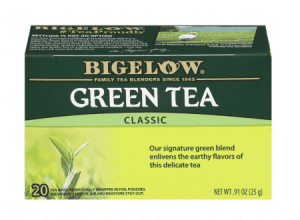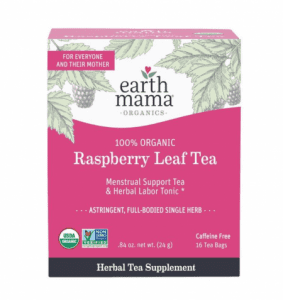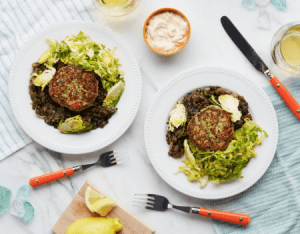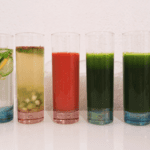We hope you love the products we recommend! Just so you know, Trendy Mami may collect a share of sales or other compensations from the links on this page.
–
Trying to get pregnant can feel like navigating a confusing maze, especially when you see conflicting information online. You might be researching “types of birth control near me” one minute and then see something about fertility tea the next. Let’s dispel any confusion surrounding fertility tea.
Fertility tea is a blend of herbs marketed to help people get pregnant. Like a special kind of tea that some believe increases your chances of having a baby. However, the science on it is still shaky. Similar to the placebo effect, some athletes believe lucky socks enhance their performance, but there’s no guarantee of success.
While fertility tea is simpler than copper iuds, remember that there’s no magic bullet for getting pregnant. If you’re seriously considering starting a family, your best bet is to talk to a doctor or healthcare professional. They can give you personalized advice based on your individual situation and answer any questions you might have. Remember, exploring options like the female condom, birth control pills, or the intrauterine device iud is totally normal.
The Basics of Fertility Tea
Fertility tea stands as a carefully curated blend of herbs and botanicals. Marketers claim that it bolsters reproductive health and increases the likelihood of conception. Ingredients vary widely among brands, with common additions including red raspberry leaf, nettle leaf, vitex, and green tea.
Despite claims that these herbal blends can regulate periods and balance hormones, the science behind them is still weak. People are easily confused when ads for birth control and fertility tea are all over the internet.
Target.com
Does Fertility Tea Actually Work?
Fertility tea is all the rage these days, with claims of boosting your chances of getting pregnant. But before you ditch your hormonal methods and stock up on herbal blends, let’s see if the science actually backs it up.
People have been using herbs for centuries for various health purposes. The evidence supporting the effectiveness of fertility tea as a form of birth control is still shaky.
While online personal accounts from friends might portray positive experiences, they are not a substitute for scientific evidence.
Hormonal Balance
Proponents of fertility tea often claim it is a form of hormonal contraception. It helps balance hormones thanks to ingredients like vitex. While these herbs might influence the hormonal system, there’s no slam-dunk scientific proof yet. You should always consult a healthcare professional before adding any new supplements or herbal remedies to your routine.
Ovulation Stimulation
Promoters of fertility tea say it helps with ovulation. This means it can help your body release estrogen and progestin with an egg, which might boost your chances of getting pregnant. Proponents claim that certain herbs in the tea, like nettle leaf and red raspberry leaf, can support reproductive health. However, scientists are still investigating whether these herbs actually have a significant impact on ovulation.
Target.com
Nutritional Support
Fertility tea often boasts a blend of vitamins and minerals essential for reproductive health. Similar to the antioxidants found in green tea. However, relying solely on tea to meet all your nutrient needs isn’t enough. Maintaining a balanced diet and consulting a healthcare professional are crucial for ensuring proper nutrient intake.
~Advertisement~
The Importance of Individual Factors
Promoters of fertility tea say it helps with ovulation. This means it can help your body release an egg, which might boost your chances of getting pregnant. Proponents claim that certain herbs in the tea, like nettle leaf and red raspberry leaf, can support reproductive health. However, scientists are still investigating whether these herbs actually have a significant impact on ovulation.
Underlying Health Concerns
Underlying health conditions, such as polycystic ovary syndrome (PCOS) or endometriosis, can often contribute to fertility struggles. However, relying only on fertility tea won’t help much. The process would be similar to trying to cure a serious illness with just one type of herb. Seeking medical advice and pursuing appropriate treatment are essential steps in addressing these underlying conditions.
Lifestyle Factors
Remember, fertility is complex and influenced by many factors, not just one thing like tea. Fertility tea might have some benefits, but it’s only one part of a healthy reproductive system.
Just like other aspects of your health, your lifestyle choices play a big role in fertility. Things like stress, smoking, unhealthy eating, and drinking too much alcohol can all make it harder to get pregnant. Skip the tea and focus on healthy habits like good food and exercise – they’ll do a lot more to help you get pregnant.
Consider adding a balanced diet with reputable grocery delivery services like this meal from FreshDirect!
Freshdirect.com
Individual Variations
Everyone’s body is different, and what works for one person might not work for another. It’s important to listen to your body and pay attention to things like your menstrual cycle. This includes tracking the consistency of your periods, their length, and any physical symptoms you experience.
Understanding your menstrual cycle can be helpful for various reasons, including:
Identifying any potential fluctuations: If your cycle becomes irregular or experiences significant changes, it could be a sign of an underlying health concern. Consulting a doctor can help determine the cause and recommend appropriate management strategies.
Tracking your periods helps you understand when you’re most likely to get pregnant. This is a fertile window. Conversely, it can also be helpful for planning birth control if you’re not ready to get pregnant.
Paying attention to your menstrual cycle can be a good way to keep an eye on your health. It can be an indicator of hormonal balance, stress levels, and even potential nutritional deficiencies.
If you have any questions or concerns about your menstrual cycle, don’t hesitate to talk to a doctor. They can provide you with personalized advice and information based on your individual health history and needs.
Ready to Stop Searching for “Birth Control Near Me” and Conceive?
Thinking about ditching the “birth control near me” searches and moving on to baby-making mode? While fertility tea might seem like a trendy solution, it’s not exactly a guaranteed path to parenthood.
While fertility tea might not hurt, and some people swear by it, it’s important to remember that there’s no magic bullet for getting pregnant. If you’re seriously considering starting a family, your best bet is to talk to a doctor or healthcare professional. They can give you personalized advice based on your individual situation and answer any questions you might have.
Remember that using hormonal birth control or emergency contraception doesn’t interfere with your ability to get pregnant later. Everyone’s journey is different.
After transitioning from birth control to planning for pregnancy, it’s essential to explore your options for optimizing fertility. After all, family planning remains many-sided and involves a number of methods. If you are interested in birth control options, you can explore various alternatives beyond pills. Learn more about fertility options from reliable resources here!
















